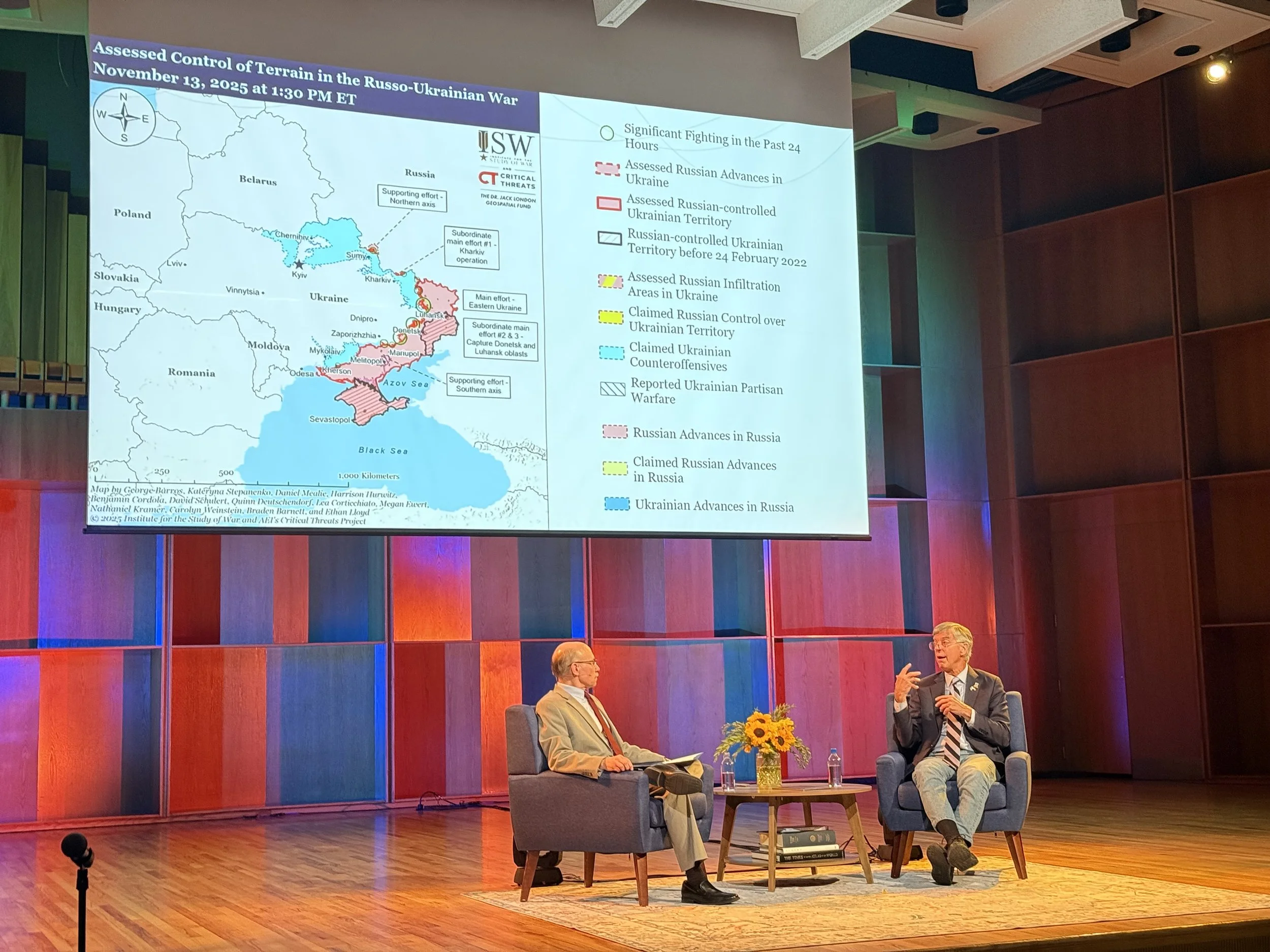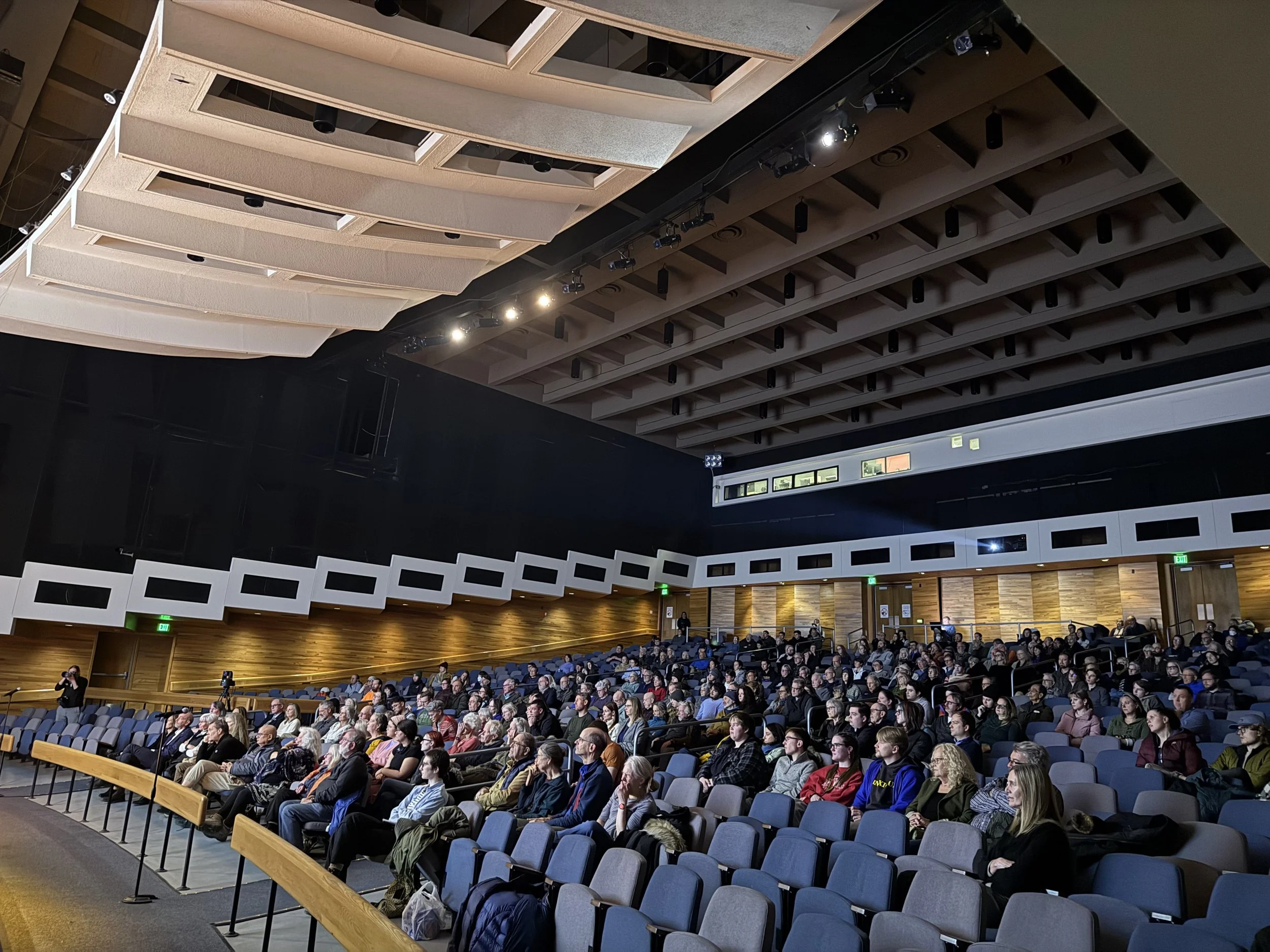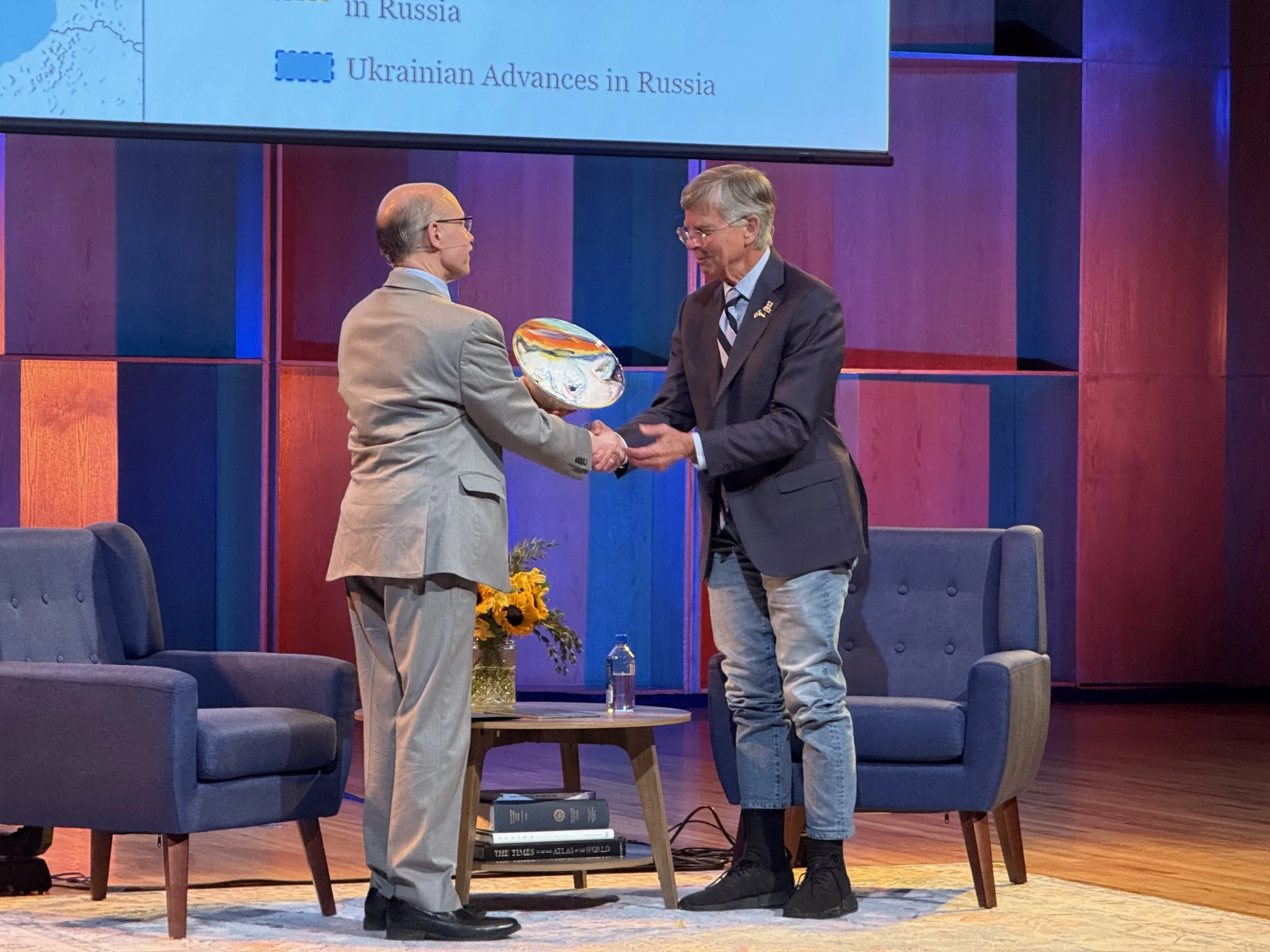Diplomatic Dialogue: A Conversation about the Ukrainian War
Story and photos by Aaron Thomas
Mike Sfraga and William “Bill” Taylor discussing the war in Ukraine.
The former U.S. Ambassador to Ukraine, William “Bill” Taylor, who served under President George W. Bush and as a chargé d'affaires to Ukraine during President Trump’s first term, spoke at a town hall on the Ukraine-Russia conflict at UAF in the Davis Concert Hall. In addition to explaining the historical context and background that led to the invasion of Ukraine in 2022, Taylor gave insights into the current geopolitical situation, the progress of the war, and the recent Trump-Putin summit in Anchorage.
Taylor was interviewed onstage by Mike Sfraga, the former U.S. ambassador at large for Arctic affairs, and now the interim chancellor of the University of Alaska Fairbanks.
Taylor has a decorated history as both a veteran and a civil servant. Graduating from West Point, he served in Vietnam and Germany before shifting his career to the political sphere. While his primary focus has been in Ukrainian political relations, he also served as director of the Iraq Reconstruction Management Office, the special coordinator for Middle East transitions during the Arab Spring, and as the U.S. government's representative to the Middle East Quartet.
At the beginning of the dialogue, Sfraga stressed that although this conflict may seem distant to Fairbanksans, its effects will no doubt have an impact on Alaska.
Crowds fill the Davis Concert Hall on Friday, November 14, 2025.
While the invasion of Ukraine by Russia began in 2022, Taylor explained that the active part of this conflict began in 2014 with the invasion and subsequent annexation of Crimea. Taylor asserted that Russia’s determination to occupy Ukraine stems from Putin's personal interest in expansionism and personal legacy.
“He has this obsession with being seen in history, in Russian history, as a great Russian leader, or Peter the Great, or Catherine the Great, or he would even put Joseph Stalin in the category of great Russian leaders,” said Taylor.
Ukraine’s democracy and independence presents a direct opposition to Putin’s interests in Europe. While the invasion of Ukraine represents the greatest escalation of Russia’s aggression, Putin attempted to interfere in the 2004 election in Ukraine and has long since sought to topple democracy in Ukraine.
“If Russia dominates Ukraine, then it is an empire, it can continue to dominate.
But Russia without Ukraine cannot be an empire and might be able to become a democracy,” said Taylor.
Taylor also addressed the concept of territorial concessions as a means to ending the war. While many proposals have been made to cede territory to Russia to achieve a ceasefire, Taylor said this strategy will be detrimental to Ukraine and its allies in the long term.
“There are Ukrainians living in that occupied territory. So we're not just talking about land, we're talking about people. We're talking about citizens who are living there and Ukrainians point out what happens to Ukrainians when they live under Russian occupation, and it's horrible.”
Another topic of discussion was why Russia struggled so much in the early stages of the war. Taylor believes that Putin began the war under the assumption that Ukrainians would not put up a large resistance. While the Russian army is now making slow, but steady territorial gains, the early stages of the war were marked by widespread disorganization and failures. Taylor suggests that this critical error must have been the result of false intel in Putin’s inner circle.
Mike Sfraga gifting William Taylor with bowl made by artist Todd Schirmer.
As the war has progressed, Russia has suffered staggering casualties. According to Taylor, estimates have placed casualties around 1.2 million soldiers that have either been killed or taken off the battlefield due to injury. In regions such as Donbass, Russia is losing up to 20,000 soldiers a month.
Sfraga and Taylor also discussed the Trump-Putin summit held in Anchorage, as well as the broader trends of the Trump Administration's support for Ukraine. While the Trump Administration initially seemed skeptical of support for Ukraine, after the summit in Anchorage Trump seems more inclined to support Ukraine with weapons and sanctions, according to Taylor.
“That Oval Office disaster where the vice president and president told President Zelensky he didn't have the cards, he didn't have the leverage, as you just said, that was a low point,” said Taylor
At the end of the event, Taylor fielded audience questions ranging from what economic levers could be used to end the war, whether or not there is a possibility of tactical nuclear weapons being used against Ukraine, and what role the US has played in Ukraine’s politics in years past.




